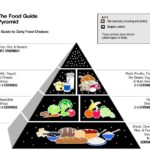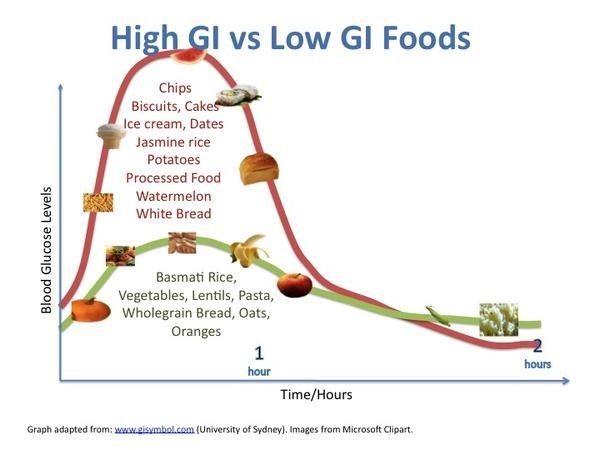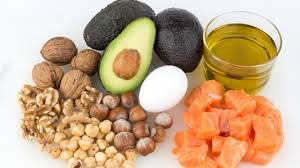Fats make you fat, right?
Fats make you fat, right??
 WRONG
WRONG
Seems only logical that ingesting fats would, in turn, make us fat, right? Most Americans became far more conscious of their weight and body image during the low fat “craze” of the 1990s. Attention soon turned to our diet to help maintain a “healthy” body, at the center of which was The Food Pyramid.
This guide to proper food choices was built on a base of processed “whole grain” foods, gradually tapering to the evil, to-be-avoided-at-all-cost “fats”. Ironically, in the years that followed, America’s obesity epidemic flourished, as the incidence of diabetes, high blood pressure, and high cholesterol accompanied ever-expanding waistlines. Even with the average calorie and fat intakes dropping by 4% and 11% respectively, the number of overweight Americans rose by almost 1/3.
The Truth About Calories
During this time I watched both of my grandparents, avid followers of the latest nutritional advice, gain weight and eventually develop diabetes. As a medical student I learned about calories, where I was taught that protein and carbohydrates each account for 4 calories per gram, but dreaded fats were more than double this, at 9 calories per gram! These facts can be verified empirically in a lab setting, so the natural implication here was that fats were more conducive to weight gain than other food sources.
There’s one key flaw is this hypothesis; a laboratory is not real life. These simple facts don’t represent what goes on in our bodies, which are complex biological systems. It’s not a simple linear equation of: calories in – calories burned = weight change. Food “talks” to our bodies, and this conversation can alter our gene expression, the bacteria that in our gut, our hormones, and the pro- and anti-inflammatory chemicals our bodies produce. All of these play a role in the body’s ability to retain and store fat, or boost our metabolism and burn fat.
So during the aforementioned low fat trend, why did my grandparents, like many Americans, gain weight? The answer is sugar. Carbohydrates, whether from a slice of bread or a candy bar, are broken down into sugar. The more processed the carb is (pasta, crackers, baked goods) the faster the body breaks it down and releases sugar into the body. The speed at which the body is flooded with sugar makes it more difficult it is for our bodies to manage. Conversely, foods like vegetables, fruits, and whole grains contain more fiber which release sugar more slowly into our system, allowing our bodies to better manage the incoming sugar rush.

Eat Real Food
The body produces insulin which brings the sugar into our cells, which we then use for energy. While insulin is essential to life, chronically high insulin levels due to the “Standard American Diet” can be detrimental. Insulin levels can remain high in an attempt to shuffle sugar into our cells, which then promotes inflammation in our bodies. It tells our cells to hold onto fat and to store in in our midsection (aka “muffin tops”). It tells our liver to make more cholesterol (no, it’s not the eggs) and we end up with high cholesterol. Too many processed carbs perpetuate this cycle, making it hard for us to lose weight. Carbs in our diet will turn off our fat burning genes but the right fats will turn on our fat burning genes. So no, healthy fats do not make us fat, it’s too many processed that are responsible.
HEALTHY Sugars and Fats??
Now I’m not suggesting you go out and eat any and all fats. There are different types of fats to be aware of some of which are “good” health promoting fats while others are “bad” inflammation and disease promoting fats. For more information about the nitty gritty on fats check out this blog.
Examples of healthy fats to incorporate into your diet include avocado, omega-3 fats from fish, coconut and olive  oils and nuts.
oils and nuts.
I bet my grandparents would have enjoyed healthier lives had they stuck with their eggs for breakfast and snacking on nuts rather than switching to packaged oatmeal and wheat thins. The best we can do is to look at where current science is leading us and it’s clear we need to be more concerned with sugar than fat. So please, enjoy some healthy fats in your diet without guilt and limit the quick fix, high sugar, insulin-spiking foods that are culpable for making us sick and fat.
Written by Dr Patricia Zub

 “Finding 4 Better Health was a blessing after many years of traditional medicinal doctors /Endocrinologists being unable to get me to feeling optimal. Dr Zub listened to me, truly heard me & devised a proactive plan for me to have a better life. My body is still healing, but I am no longer barely functioning to get through my daily life. I can exercise again without being completely depleted of energy. I have been able to successfully lose 20 pounds. I feel I can always contact Dr. Zub with any questions or concerns I may have. We continue to work together to find the right course of action for my health. I can’t say enough great things about their practice.”
“Finding 4 Better Health was a blessing after many years of traditional medicinal doctors /Endocrinologists being unable to get me to feeling optimal. Dr Zub listened to me, truly heard me & devised a proactive plan for me to have a better life. My body is still healing, but I am no longer barely functioning to get through my daily life. I can exercise again without being completely depleted of energy. I have been able to successfully lose 20 pounds. I feel I can always contact Dr. Zub with any questions or concerns I may have. We continue to work together to find the right course of action for my health. I can’t say enough great things about their practice.”


